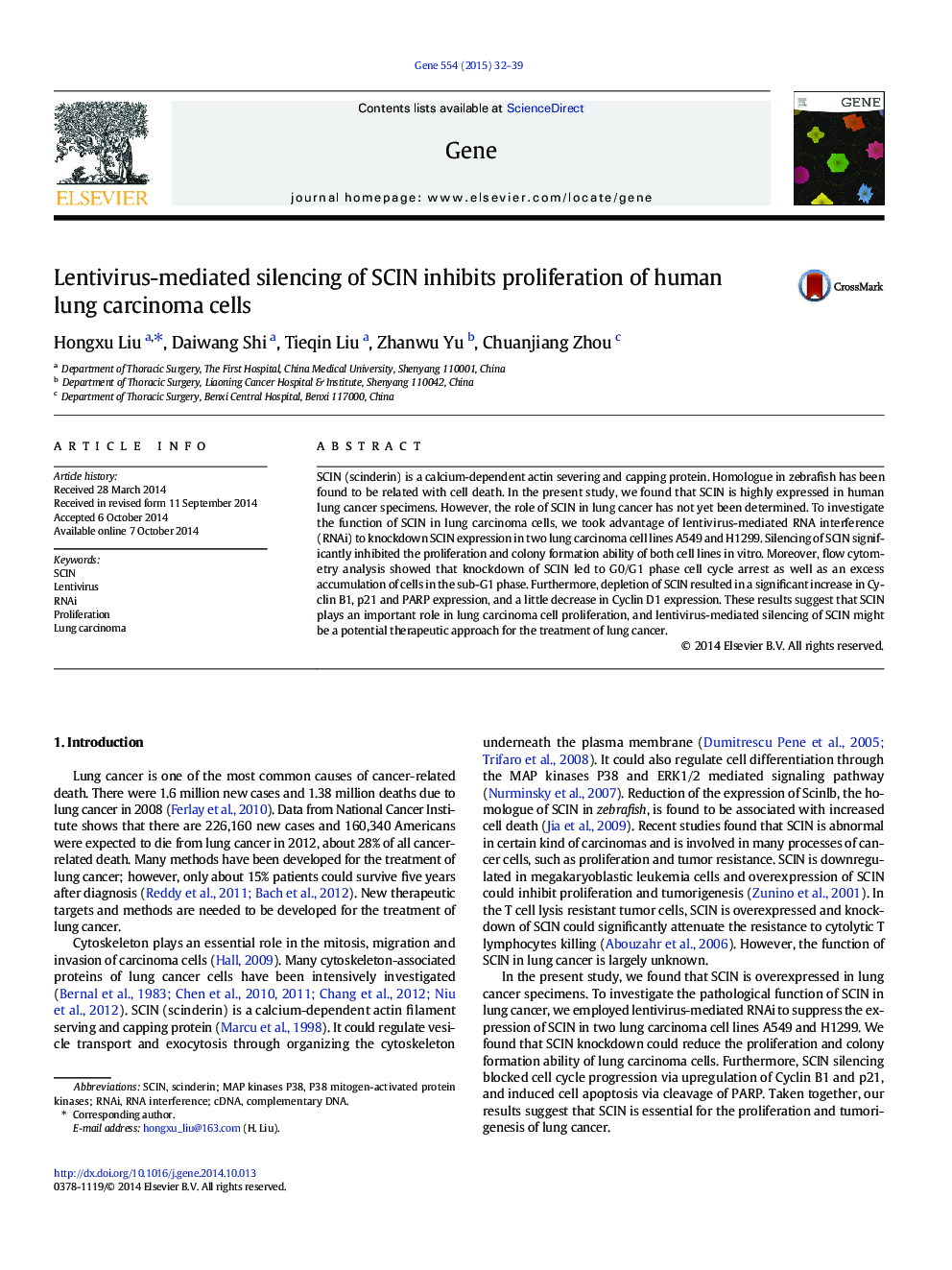| کد مقاله | کد نشریه | سال انتشار | مقاله انگلیسی | نسخه تمام متن |
|---|---|---|---|---|
| 2816029 | 1159911 | 2015 | 8 صفحه PDF | دانلود رایگان |

• SCIN silencing reduces the proliferation of lung cancer cells.
• SCIN silencing causes cell cycle arrest via upregulation of Cyclin B1 and p21.
• SCIN silencing induces cell apoptosis via cleavage of PARP.
• SCIN overexpression accelerates the proliferation of lung cancer cells.
• SCIN may be a potential therapeutic target in human lung cancer.
SCIN (scinderin) is a calcium-dependent actin severing and capping protein. Homologue in zebrafish has been found to be related with cell death. In the present study, we found that SCIN is highly expressed in human lung cancer specimens. However, the role of SCIN in lung cancer has not yet been determined. To investigate the function of SCIN in lung carcinoma cells, we took advantage of lentivirus-mediated RNA interference (RNAi) to knockdown SCIN expression in two lung carcinoma cell lines A549 and H1299. Silencing of SCIN significantly inhibited the proliferation and colony formation ability of both cell lines in vitro. Moreover, flow cytometry analysis showed that knockdown of SCIN led to G0/G1 phase cell cycle arrest as well as an excess accumulation of cells in the sub-G1 phase. Furthermore, depletion of SCIN resulted in a significant increase in Cyclin B1, p21 and PARP expression, and a little decrease in Cyclin D1 expression. These results suggest that SCIN plays an important role in lung carcinoma cell proliferation, and lentivirus-mediated silencing of SCIN might be a potential therapeutic approach for the treatment of lung cancer.
Journal: Gene - Volume 554, Issue 1, 1 January 2015, Pages 32–39